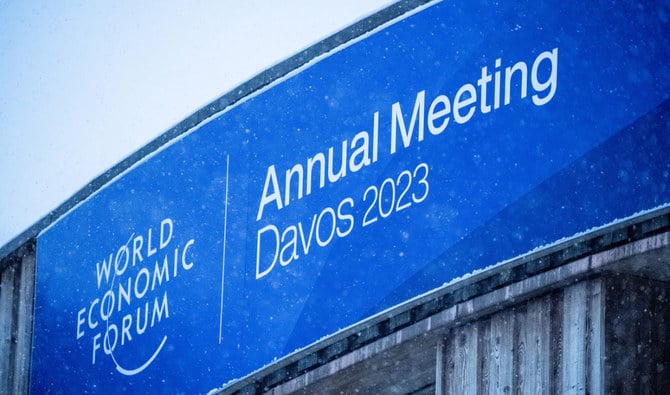
For many climate scientists and activists, the conclusions in the latest Intergovernmental Panel on Climate Change were no surprise. Drawn from more than 14,000 scientific studies, it is the most comprehensive depiction yet of a planet in peril as intensifying climate change continues to alter the natural world. The report concluded that human activity was solely to blame for global temperatures rising faster than at any time over the last two millennia.
We are now on an irreversible path to average global temperatures rising by nearly 2°C in the next two decades even if we accelerate climate action plans, slash greenhouse gas emissions and eliminate fossil fuels. The damning assessment sent shockwaves throughout the world. There is a palpable sense of urgency among governments to prioritize climate change mitigation, and extend adequate funding to the developing world to assist with similar measures.
Usually, there are muted reactions to climate change publications such as the IPCC report. Governments have traditionally meandered between indifference, and perfunctory gestures informed by the complexities of public policy, the absence of jurisdiction or accountability when it comes to climate change mitigation, and global mistrust of governments creating new barriers to effective climate action.
Additionally, the world has often struggled to imagine the catastrophic consequences of runaway global warming. Such scenarios, which are often described in graphic detail by climate scientists, tended to be too improbable to be effective inducements for us to change our behavior.
However, the past two years have delivered numerous signs that our planet is treading dangerously in uncharted waters. Heatwaves continue to bake parts of the world, fueling wildfires from California to Siberia and Turkey to Algeria. Reduced rainfall has led to dried-up lakes and rivers, worsening food and water insecurity in some of the world"s most impoverished regions. Countries in Europe, Africa, and Asia experienced unprecedented floods, resulting in mudslides, destruction of infrastructure, and the disruption of lives and livelihoods.
All these now visible changes are occurring at a time when the world is more than 1°C warmer than when we began burning fossil fuels. Extrapolating from the latest findings, it is likely the world will experience exponentially worse climate-related disasters unless significant action is taken now. Climate change has ceased to be a nebulous doom-laden phenomenon coming at some indeterminate future date. We are living through it now.
More frequent and extreme heatwaves will become common even in places with little or no experience of them, such as Asia, Europe, and North America. In the Middle East and North Africa, where extreme poverty has doubled and nearly 20 percent subsist on less than $2 a day, a hotter planet will exacerbate existing socioeconomic challenges.
Climate disasters will compound already heightened risks of perpetual instability. A fumbled response to the COVID-19 pandemic is thwarting much-needed economic growth, which could have addressed rising unemployment, funded critical socioeconomic transformations, and ultimately sparked a divergence from the traditional dependence on fossil fuels.
For the Arab world, accelerated climate action will create a two-track response. Developing countries in the region will have to make their assessments in terms of what changes they can make to contribute to global climate goals, and how much funding they will require, which will then be borrowed from the wealthier nations.
Hafed Al-Ghwell
The consequences of unmitigated climate change will upend most of the region’s developing countries, mostly populated by those who will be unable to adapt as temperatures soar. Already, more than a third of heat-related deaths in the world are attributable to climate change. This is extremely concerning especially for the Arab world’s poor, who have little choice but to engage in strenuous activity outside in extreme heatwaves.
Extreme weather events are already known to worsen the conditions that perpetuate the cyclical nature of poverty since the poor will need increasing amounts of capital and resources to recover. Essentially, failing to act now, given the warnings and visible signs of a planet in peril, will intensify most of the region’s ills, producing new challenges that governments, and the international community, are ill-equipped to address.
Some of these risks are not shared by oil-producing nations that have so far escaped the worst of the pandemic-induced global downturn. However, the conclusions drawn in the IPCC report mean that planned long-term global energy transitions that strike at the core of the region’s hydrocarbon industries will be accelerated. In other words, the world is likely to arrive at “peak oil” a lot sooner than anticipated as new investments go towards alternatives and subsidization of lifestyle changes to meet new, more urgent, and ambitious climate goals.
It remains to be seen whether governments will revisit climate goals, set new ambitions, and re-commit themselves to confront what is increasingly becoming an inevitable future. That litmus test will have to wait a few months for the 2021 United Nations Climate Change Conference, COP26, in Glasgow, Scotland. So far, current voluntary pledges will fall far short of keeping temperature rises under 2°C and the IPCC report has added more pressure on governments to take far more drastic steps.
For the Arab world, accelerated climate action will create a two-track response. Developing countries in the region will have to make their assessments in terms of what changes they can make to contribute to global climate goals, and how much funding they will require, which will then be borrowed from the wealthier nations. Those wealthier countries will have to speed up their transformation plans even more to compensate for revenues from fossil fuel.
This creates a divergence of policies at a time when enhanced regional cooperation is needed to ensure neighboring countries are working in lockstep and sharing the burden of preventing runaway climate change. Working unilaterally will widen existing gaps, which will lead to wealthier Arab nations becoming the primary destination of choice for climate refugees fleeing uninhabitable regions, and conflicts sparked by food and water scarcity.
• Hafed Al-Ghwell is a senior fellow with the Foreign Policy Institute at the John Hopkins University School of AdvancedInternational Studies. Twitter: @HafedAlGhwell
Disclaimer: Views expressed by writers in this section are their own and do not necessarily reflect Arab News" point-of-view












